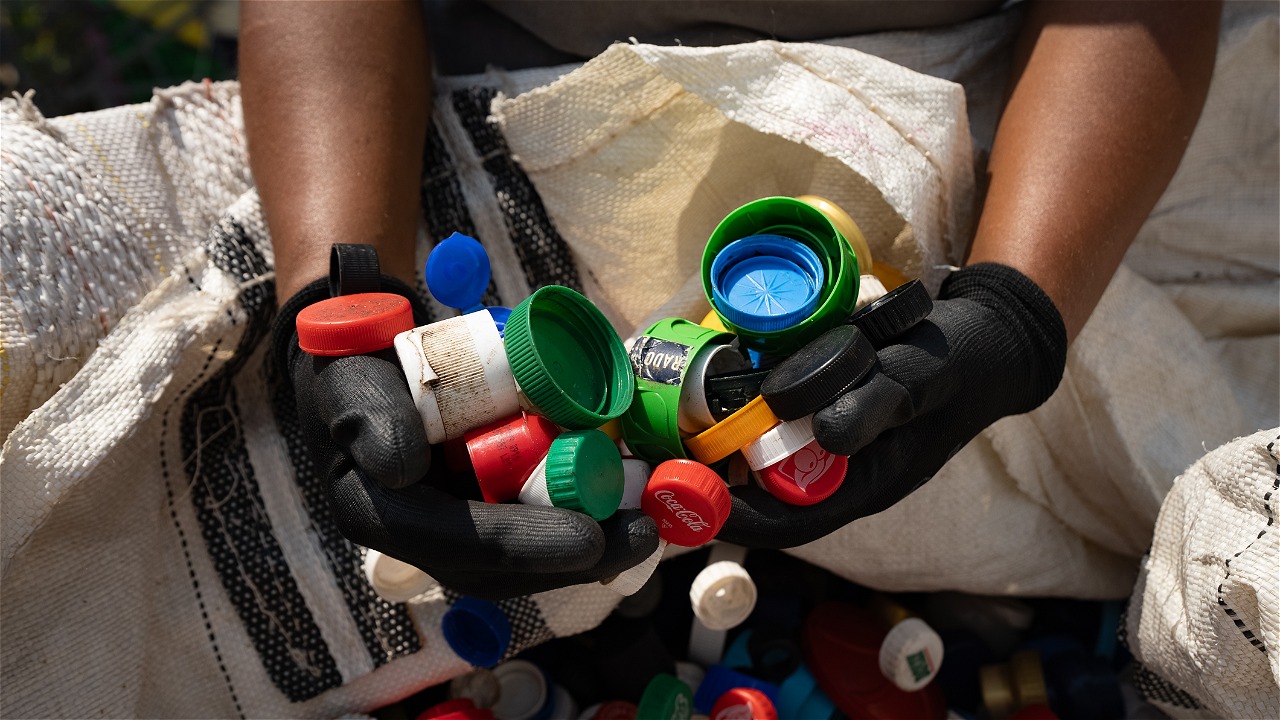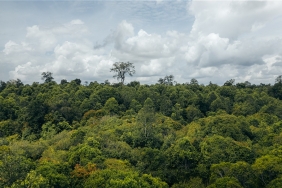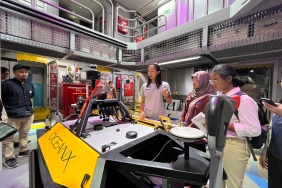BUMI PANDA EDUCATES ABOUT WASTE THROUGH DISCUSSIONS AND RECYCLING ACTIVITIES
By: Sani Firmansyah & Natalia Trita Agnika
For two days, the Bumi Panda WWF-Indonesia team was invited by SOS Children Village Lembang and HSBC to educate the community and children around Lembang about waste. On the first day, Saturday (12/12), discussion activities were conducted with housewives who were accompanied by volunteers from HSBC. The group discussion took place warmly. From the discussion, it can be seen the problem of waste generation around the residents' homes. "Around our house, there are no officers who routinely transport waste. Mostly, the garbage is burned by residents or even thrown into the river," said Nina, one of the residents.
The team from Bumi Panda then provided information on the relationship between waste and conservation. An easy solution was shared with the discussion participants, which is to sort waste starting from their homes. Waste is sorted first between organic waste and inorganic waste. "Organic waste can be used as compost. While inorganic waste is utilized by recycling. In addition to sorting waste, another habit that must be instilled is to reduce the use of plastic bags. We can replace them by using cloth bags that can be used repeatedly," explained Sani Firmansyah from Bumi Panda.
On the next day, Sunday (13/12), information about waste and the environment was delivered to children around Lembang through various interesting activities. One of them is by watching the movie "Banyu's Adventure in the Land of Trash". The movie tells the story of the journey of waste, from being dumped in the trash to the landfill. The children also learned about the impact of littering on the environment, such as flooding and various disease outbreaks. All the children listened to the movie solemnly, especially when it told the story of the waste recycling process.
After watching the movie, the children played cricket. This traditional game is not an ordinary game because it contains information on the link between the habit of littering plastic waste and the decline in sea turtle populations. "Plastic waste that is carried into the sea is often mistaken for food by sea turtles because it looks like jellyfish. When eaten, the plastic waste will make the turtle choke and die," explained Melly, a volunteer from Bumi Panda.
The amount of information about waste and the environment made the children more aware of the importance of protecting the environment. Therefore, they were very enthusiastic when taught how to recycle used cardboard into a photo frame. The results of their creations were very attractively decorated. The atmosphere became more lively when each child was asked to make observations in the surrounding environment and try out the game "Forest Police and Hunters". Laughter broke out when they quickly put on and take off the cloth as a symbol of the police chasing the hunter.
Through various activities for two days, the team from Bumi Panda hopes that the community and children around Lembang can help protect their environment and start an environmentally friendly lifestyle.





